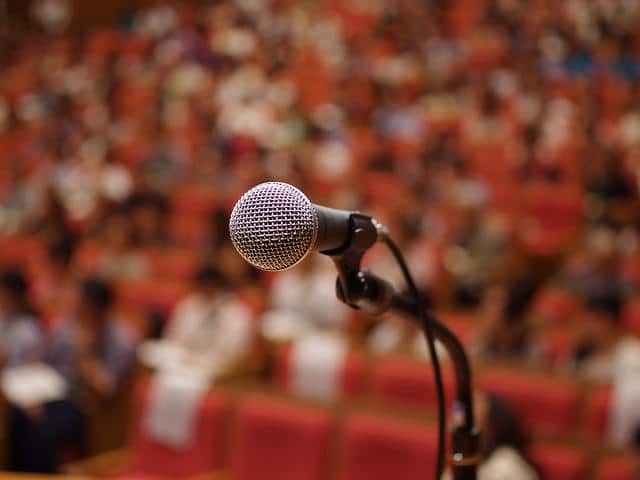
How to communicate efficiently?
PR & Marketing
Posted 21 Apr 2016
In the course of life, we find ourselves in different situations in which we have to communicate our ideas, thoughts, plans or goals. Politicians try to convince us through communication strategies during campaign season. Companies want to demonstrate that their products are the best ones. Our boss attempts to bring us his new strategies closer. We try to convince the banks to fund our start-up project. So communication is a major part of our everyday life.
In professional life it is essential to know and to master different communication skills.
In our five tips below, we will show you, what you have to keep in mind, if you try to convince someone of something – no matter if someone is a client or a whole conference audience consisting of 20.000 people:
1- Preparation
In any case, you should be prepared. Who do I talk to? Are there industry professionals in the audience? Are the auditors interested in the topic? How old are they? There is a big difference in talking to a child or to an adult. Just like it is not the same if you talk to a German or to a Spaniard or if you say something on Monday or Friday… The more answers we already have for those questions, the better we are prepared and therefore the better we can respond in the real situation.
2- Plan B
If I tell you right now that you should better give a lecture on topics where you are some kind of expert, you will think that this is not a very new idea. Nevertheless, it is always useful to keep that in mind. Should you have to deliver a speech about an unfamiliar topic you’ve still got two possibilities: 1. Cancel the appointment (but that’s not always possible); 2. Research and get information about the topic (that’s definitely a possibility). Taking this as a fact, there isn’t any rational excuse for us left to cancel an appointment or a speech. Furthermore, we can be prepared for unforeseen problems, for example take a water bottle with you, take two shirts so that you can get changed if you got dirty during breakfast or pack a talisman calming you down if there is an emergency.
3- Inspiration & improvisation
What can I talk about? At this point we have to give free rein to the ideas and creativity. Through brainstorming sessions, we can determine all the important points for the presentation. How do we begin? What can be the end of the lecture? Or what should be emphasized with this speech? All of these issues don’t occur all of a sudden during the actual presentation. You have to be prepared. Even more essential is the preparation for unforeseen situations. Here is a pair of examples that could be helpful:
4- The presentation
Give your presentation a proper structure, make it harmonious and pleasant. Maybe you can use the traditional scheme of an article (introduction, main part and conclusion) as a model for your own structure. A presentation is only a supplement, in the end a tool which we can rely on. Therefore, you should never ever open your presentation in front of the audience and read out the points from the beginning to the end.
There are two crucial moments during the presentation – the beginning as well as the conclusion. Ideally, we start with something special so that we can catch the attention of the audience right from the beginning. To close the presentation, it is advisable to amaze the listeners and at the same time encourage them to think about what was said. If the auditors can use the information of the presentation immediately after the speech, there is a greater chance that they are stick in their minds. In this case we have reached our goal.
5- The performance
Key premise: ‘You have to stay yourself’. The audience wants authenticity, so don’t try to be someone else. If your behavior seems strange the auditors will recognize it. And they rather notice your nervousness than the content of the speech.
Apart from that the speaker should be active, forceful and motivated otherwise the presentation can be monotonous and boring. And the listeners are fed up with this sort of speeches.
Maybe you’ve got the best presentation in the world including the best content, pictures and statistics but if you go on stage and talk to your auditors in the same monotonous tonality all the time or if you ask no questions, the lecture can become a great failure.
But how can you improve your lecture?
About 80 per cent of the success of a presentation or a conversation depends on your behavior and our communication skills. Just ask yourself the following questions: What do I personally expect from a lecture? The answer is the key to success.